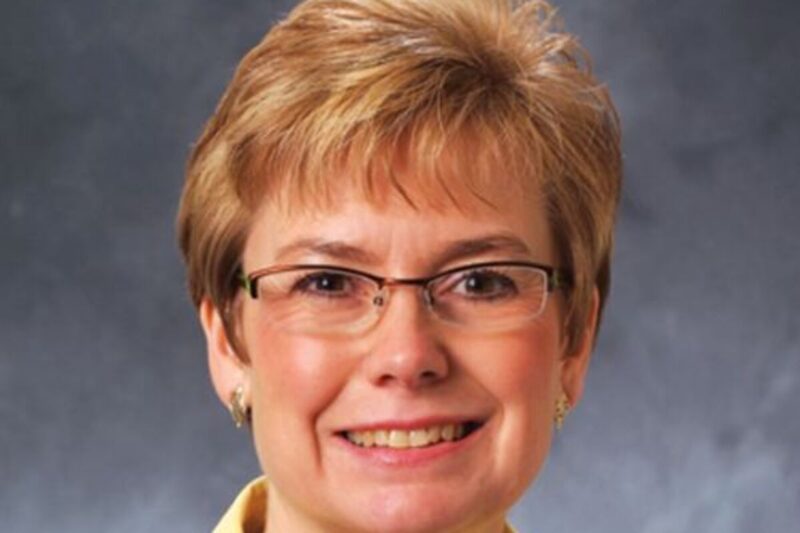Sean C. Morgan
House District 17 Rep. Sherrie Sprenger is planning to bring several constituent concerns and issues to the Oregon Legislature this year.
Those include addressing the proliferation of cougars, legislations that she believes would benefit the timber industry, and various school-related proposals.
“I’m looking to pass some of these,” she said. “I’m optimistic about a good handful of these concepts passing.”
Right now, she has several concepts before legislative counsel, the initial step in creating a bill, she said. The attorneys take legislators’ ideas and turn them into workable bills.
School District Insurance
In 2005, the legislature passed a law that required school districts to get their insurance from the Oregon Education Benefit Board, Sprenger said. The districts are not allowed to leave the program unless they self-insure, something that small districts cannot do.
She wants to pass a bill that allows school districts with less than 500 employees to opt out of the program if they can show comparable benefits at a lower cost, Sprenger said. “It has to do with how expensive it is.”
Cougars
Addressing a growing problem with cougar encroach-ment, Sprenger is asking the Oregon Department of Fish and Wildlife to create a pilot program through 2016 that will allow persons hunting or pursuing cougars in particular areas to use dogs, similar to a successful pilot program in Washington.
The goal is to reduce cougar populations in areas with problems, she said.
She argues that the program does not overturn the measure passed in 1994 that banned hunting with dogs.
Counties will be able to opt out of the program, she said.
“I’m, quite frankly, interested in Linn and Marion counties. Some counties aren’t going to want to, but that’s OK.”
The 1994 measure failed among Linn County voters, she said. “Quite frankly, I think this honors the will of the voters.”
ACT
Sprenger supports continuing to give school districts, such as Lebanon School District, the option to use the ACT instead of the SAT for testing high school students.
All schools are mandated to use the SAT unless they have a waiver, she said. She will support a bill requiring the Department of Education to grant a waiver to allow districts to contract with entities that meet specified criteria for the purpose of administering nationally formed assessments and to reimburse the costs.
“Lebanon and other districts will argue that we get more benefit out of the information on the ACT, and we use it to help steer our seniors,” she said.
The bill is routine, and she has voted for it a couple of times.
LUBA
Sprenger would like to limit who has standing to appeal land use decisions to the Land Use Board of Appeals.
She is pursuing a concept to require people seeking to appeal to LUBA to show that they are negatively affected by the outcome of the land use decision they are appealing.
She hears from people in her district that they are afraid to even begin a land use process, knowing that certain groups, whose members don’t live in the area, will oppose them and appeal the decisions.
“That bill is intended once again to open the discussion about land use,” Sprenger said. It’s about private property rights and local interests.
Wood First
A “Wood First” bill would require the Oregon Department of Administrative Services to adopt rules regarding the use of wood in buildings constructed by public bodies using state funds, Sprenger said. The bill would prohibit the use of state funding for buildings not conforming to the rules.
“They did this up in Canada a few years ago, and it seems to be doing fairly well,” Sprenger said. The rules would require public agencies to consider wood first. It wouldn’t require the use of wood, just that it is at least considered.
“It’s just a statement we need to look at wood again as a viable alternative,” Sprenger said, especially considering the dependence of Oregon communities on the wood products industry.
She has a Democrat co-sponsor on this bill, and a Democrat has introduced a similar bill, she said, so she believes it has fairly wide support.
Collective Bargaining
To save money, another bill would exclude certain subjects from mandatory collective bargaining between the state and employees unions.
The bill would allow the state to contract for some services, Sprenger said. “It’s a tool to save taxpayer dollars.”
Some people argue that it could lead to loss of jobs, she said, but the bill would help the state focus more on its programs and delivering its services.
Ethanol
Initially, Sprenger didn’t think a repeal of the requirement that gasoline be blended with ethanol would be likely, but along with hers, a couple of more bills would do the same thing.
In the interim, some previous opponents of the requirement have started receiving subsidies, so she anticipates some opposition to the repeal.
Woody Biomass
Sprenger is bringing back a bill that would provide a tax credit for those who turn woody biomass into energy.
She has been working with Jim Thompson from The Dalles on the issue, she said. They put together a workshop over the summer for other legislators, geared especially for Portland-area legislators.
Close to 20 attended “Woody Biomass 101,” Sprenger said, and a Portland Democrat has already asked about and indicated interest in a bill this year.
“It’s about jobs,” Sprenger said, and with the governor’s ideas about timber policy, she thinks it’ll be signed.
The bill would create a tax credit for businesses transporting woody biomass, or slash, making them financially viable.





